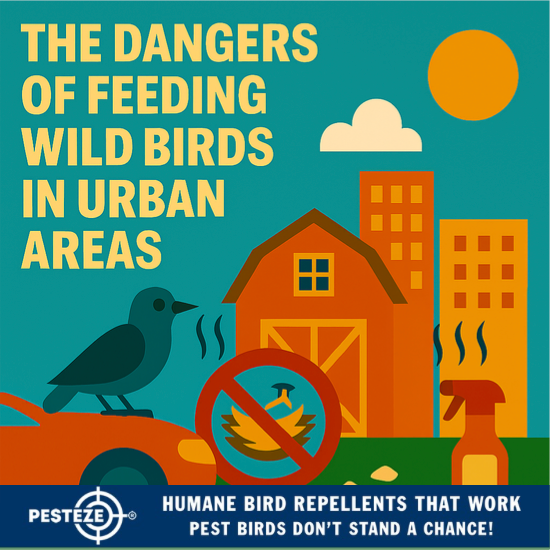THE DANGERS OF FEEDING WILD BIRDS IN URBAN AREAS

THE DANGERS OF FEEDING WILD BIRDS IN URBAN AREAS
SUMMARY
Well-intentioned bird feeding can create significant environmental and health risks in urban landscapes, threatening both wildlife and human populations in unexpected ways.
FEATURES
- Public Health Risks: Comprehensive analysis of disease transmission potential through improper wild bird feeding.
- Ecological Disruption: Understanding how human intervention impacts natural bird behaviors and local ecosystems.
- Population Management: Insights into unintended consequences of artificial feeding in urban environments.
- Environmental Impact: Examining the broader ecological implications of human-wildlife interactions.
- Community Safety: Strategies for responsible wildlife management in urban settings.
GUIDE DESCRIPTION
Urban bird feeding represents a complex ecological intervention with far-reaching consequences that extend well beyond simple acts of kindness. What appears to be a compassionate gesture can inadvertently create significant challenges for local wildlife, human health, and urban ecosystems.
Feeding wild birds disrupts natural foraging behaviors, creating dependency cycles that fundamentally alter bird populations' survival mechanisms. Urban birds become conditioned to human food sources, losing critical survival skills and natural migration patterns. This artificial support system can lead to overpopulation, increased competition, and reduced genetic diversity within local bird communities.
Health risks emerge as a critical concern in urban bird feeding practices. Concentrated feeding areas become potential breeding grounds for diseases, creating environments where pathogens can rapidly spread among bird populations and potentially transmit to human communities. Avian diseases such as salmonellosis, aspergillosis, and various viral infections can proliferate through contaminated feeding stations.
Urban environments amplify the potential negative impacts of wild bird feeding. Concentrated bird populations in limited spaces increase the risk of disease transmission, property damage, and ecological imbalance. Excessive feeding can attract nuisance species, create sanitation challenges, and disrupt the delicate balance of urban ecosystems.
Responsible wildlife management requires understanding the complex interactions between human activities and natural bird populations. Instead of direct feeding, urban residents can support bird populations through habitat preservation, native plant cultivation, and creating sustainable environmental conditions that support natural foraging behaviors.
- Pukhraj Sharma


Comments 0